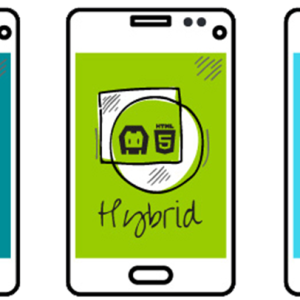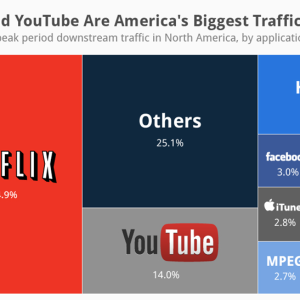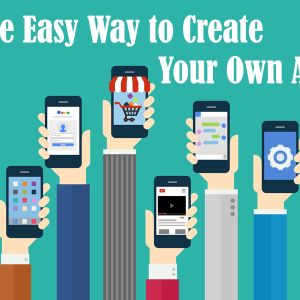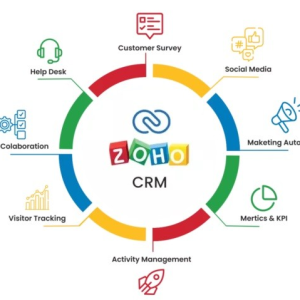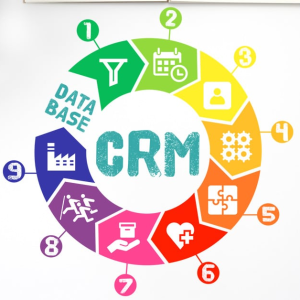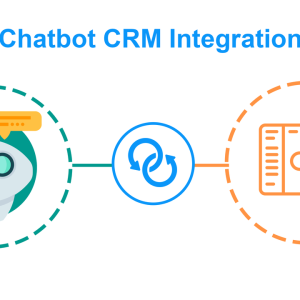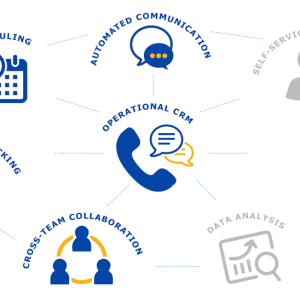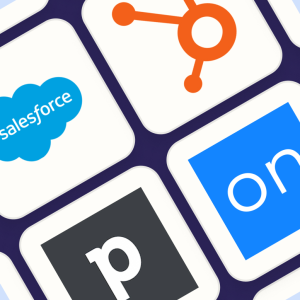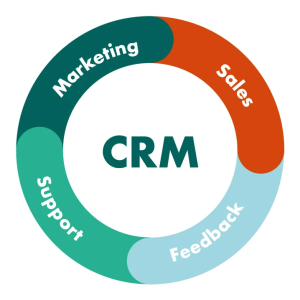Introduction
Mobile apps are expected to generate over $935 billion in revenue by 2023.
Statista
When it comes to predicting the future of any industry, there are always going to be a few variables that are impossible to account for. But when it comes to mobile apps, we can pretty much be certain that they’re not going anywhere. In fact, according to a report by App Annie, global consumer spending on apps is expected to reach $156 billion by 2022.
With such a large and rapidly growing market, there are bound to be some myths and facts floating around about mobile apps and their development. So, to help you separate the wheat from the chaff, we’ve compiled a list of 22 mobile app myths and facts about mobile apps that you should remember in 2022:
22 Mobile App Myths for 2022
Mobile App Myths #1: Mobile Apps Are Only for Big Companies
Fact: This is one of the most common myths about mobile apps. A lot of small businesses think that they don’t need a mobile app because they don’t have the resources or budget to develop one. But the truth is, there are now more affordable and easy-to-use app development platforms and tools than ever before. So, even if you’re a small business with a limited budget, you can still develop a high-quality app.
Mobile App Myths #2: Developing a Mobile App Is Expensive
Fact: Another common myth about mobile app development is that it’s expensive. While it’s true that developing a complex app can be costly, there are now many affordable app development platforms and tools that can help you create a basic app for a fraction of the cost.
Mobile App Myths #3: You Need to Be a Technical Expert to Develop an App
Fact: This is another myth that deters a lot of businesses from developing a mobile app. A lot of people think that you need to be a technical expert or have coding experience to develop an app. But the truth is, there are now many drag-and-drop app development platforms that allow you to create an app without any coding experience.
Mobile App Myths #4: Mobile Apps Are Only for Large Screens
Fact: This myth is based on the misconception that people only use mobile apps on large devices like tablets and smartphones. But the truth is, that people now use mobile apps on a variety of devices, including wearables, IoT devices, and even vehicles. So, regardless of the size of your target market, there’s a good chance they’re using a mobile app on one of their devices.
Mobile App Myths #5: You Need to Develop a Separate App for Each Platform
Fact: In the early days of mobile app development, businesses did need to develop a separate app for each platform (iOS, Android, etc.). But now, many cross-platform app development tools allow you to develop a single app that can be used on multiple platforms. So, if you’re looking to save time and money, you should consider using a cross-platform app development tool.
Mobile App Myths #6: Native Apps Are Always Better Than Hybrid Apps

Fact: This is one of the most hotly debated topics in the mobile app development world. A lot of people believe that native apps are always better than hybrid apps. But the truth is, it depends on your specific needs and requirements. If you’re looking for the best possible performance, then a native app is probably the way to go. But if you’re looking for a more cost-effective solution, then a hybrid app might be the better option.
Mobile App Myths #7: You Need to Invest in Marketing to Promote Your App
Fact: While it’s true that you need to promote your app to get it in front of your target audience, you don’t necessarily need to spend a lot of money on marketing. There are now many affordable and effective app marketing strategies that you can use to generate buzz for your app. So, if you’re on a tight budget, you can still effectively promote your app.
Mobile App Myths #8: Your App Will Never Be Complete
Fact: This is another common myth about mobile app development. A lot of people think that an app is never really “finished” and that you’ll always need to keep adding new features and updates. But the truth is, you can actually launch your app with a minimum viable product (MVP) and then continue to add new features and updates over time. So, don’t feel like you need to cram everything into your app from the start – you can always add more later.
Mobile App Myths #9: The App Store Is the Only Place to Distribute Your App

Fact: The app store is certainly the most popular place to distribute your app. But it’s not the only place. There are now many alternative app stores that you can use to reach a wider audience. So, if you’re looking to reach a specific niche market, you should consider using an alternative app store.
Mobile App Myths #10: You Don’t Need a Privacy Policy for Your App
Fact: A privacy policy is like an agreement between you and your app users that outlines how you collect, use, and store their data. A lot of people believe that they don’t need a privacy policy for their app because it’s not required by the app store. But the truth remains intact. If you’re collecting any kind of personal data from your app users, then you need to have a privacy policy in place. Otherwise, you could be facing some serious legal consequences. Not only will this help to protect your business, but it will also build trust with your users.
Mobile App Myths #11: Users Will Only Use Your App Once
Fact: It is appalling how a lot of people believe that users will only use an app once and then uninstall it. But the truth is, many users keep apps on their devices and use them regularly. So, if you can provide value to your users, there’s a good chance they’ll keep your app installed and use it regularly.
Mobile App Myths #12: You Need to Continuously Update Your App
Fact: This is another common myth about mobile app development. A lot of people believe that you need to continuously update your app with new features and updates. But the truth is, you don’t necessarily need to update your app every single time there’s a new release. You can wait for a few releases before updating your app. This will help to ensure that your app is stable and doesn’t have any major bugs.
Mobile App Myths #13: It’s Impossible to monetize a Free App

Fact: This is another common myth about mobile app development. Think you can’t make money off your free app? Think again! There are many ways to monetize a free mobile application. So if it’s been bothering you and there seems to be no end in sight, don’t worry – we’ve got some ideas on how this may be able to be solved.
For starters, you can offer in-app purchases. This is a great way to monetize a free app because it allows users to buy virtual goods or unlock premium features. You can also use in-app advertising to generate revenue from your free app. There are many different types of in-app advertising, so you’ll need to experiment to find the best fit for your app.
Mobile App Myths #14: In-App Purchases Are the Only Way to Monetize a Free App

Fact: This is another myth about in-app purchases. A lot of people believe that in-app purchases are the only way to monetize a free app. But the truth is, there are many other ways to monetize a free app. So, if you’re looking to generate revenue from your app, you should explore some of the different available monetization options.
Mobile App Myths #15: You Need to Spend a Lot of Money on User Acquisition
Fact: The good news is that you don’t need to spend a lot of money on user acquisition. There are many ways for upgrading your app without spending too much! So, if you’re looking to acquire users for your app, you should explore some of the different user acquisition options that are available.
Note: You can use App Store Optimization (ASO) to improve your app’s ranking in the app store. This will help to increase the visibility of your app and make it more likely for users to find and download your app.
Mobile App Myths #16: The App Store Is the Only Place to Promote Your App
Fact: As discussed earlier, The app store is not the only place to promote or distribute your mobile application. There are many other platforms that you can use for advertising and marketing purposes, so if people aren’t focusing on promoting their apps in those locations then they’re missing out!
Mobile App Myths #17: You Don’t Need a Mobile App if You Have a Strong Social Media Presence
Fact: Who would have guessed? But, it’s the truth, a lot of people believe that you don’t need a mobile app if you have a strong social media presence. But the truth is, that a strong social media presence is not a substitute for a mobile app. Because let’s face it, people are using social media less and less these days. So, if you want to reach your audience, you need to be where they are, which is on their mobile devices.
Mobile App Myths #18: You Don’t Need a Mobile App if You Have a Website
Fact: This is another myth about mobile app development. A lot of people believe that you don’t need a mobile app if you have a website because they think that people can just access your website on their mobile devices. But the truth is, that a website is not a substitute for a mobile app. Because let’s face it, people are using mobile devices more and more these days, and they expect to be able to access information and services on their mobile devices as notifications rather than visiting a website.
Mobile App Myths #19: You Need to Build a Separate App for Each Platform
Fact: The truth is you don’t. You can save a lot of time, money, and resources by building a single app that’ll work across all platforms. The key is to use the right development tools and strategies. With the right cross-platform mobile development tools, you can create a single app that’ll run on any platform, including iOS, Android, Windows, and more.
Mobile App Myths #20: Building for Apple is Harder than Android

Fact: Building for Apple is not necessarily harder than Android. It just requires a different approach and set of tools. While Android apps can be developed with any number of frameworks and tools, iOS apps must be developed using Xcode, which is only available on Macs. Additionally, Apple’s strict guidelines can make the approval process for iOS apps more time-consuming.
Mobile App Myths #21: A 5-star rating is the only thing that matters
Fact: A 5-star rating is great, but it’s not the only thing that matters. A recent study found that 70% of people would use an app with a 4-star rating and that only 8% of people would only use an app if it had a 5-star rating. So, don’t obsess over your rating, focus on giving your users a great experience.
Mobile App Myths #22: Downloads are a measure of success
Fact: Download numbers are not a measure of success. They’re often a misleading metric. That’s because people can download an app and never use it again. So, when assessing the success of your app, it’s important to look at other metrics, such as active users, retention rates, and engagement rates.
Remembering these myths will help you make better decisions when it comes to mobile app development. It is often easy to get caught up in the myths and not truly see the potential of what a mobile app can offer your business. Keep these facts in mind and you will be sure to create a successful app!
Conclusion
Mobile apps have become a staple for many businesses and there are now over six million apps available to download. With so much choice, it can be hard to stand out from the crowd. But, by understanding some of the myths surrounding mobile app development, you can make better decisions about how to develop and promote your app. So, don’t believe everything you hear, instead hire a reputable mobile app development company to help you create a successful app!
Looking for a reputable mobile app development company? 12 Channels will work with you to create a beautiful and successful app. Get in touch today to find out more! Contact us today! We would be happy to chat with you about your project.



